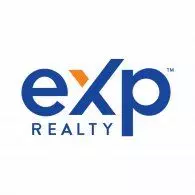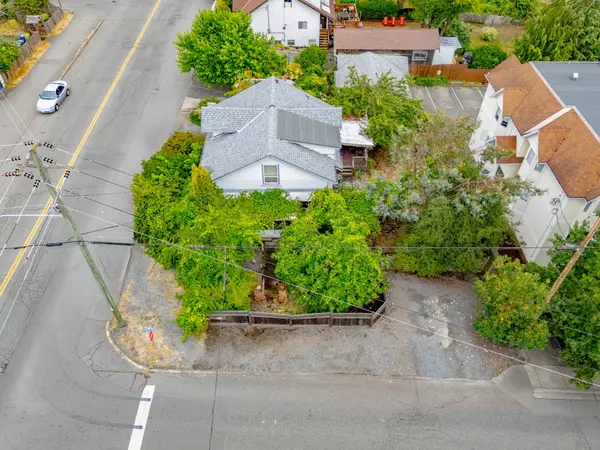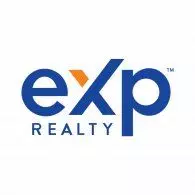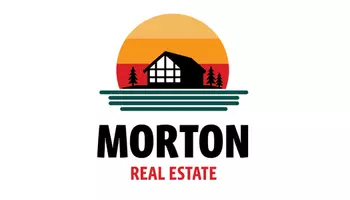
Rental Suites in Nanaimo: A Homeowner’s Guide to Authorized and Legal Suites
With the increasing demand for affordable rental housing, many Nanaimo homeowners are considering adding rental suites to their properties. However, it’s essential to understand the regulations surrounding “authorized” and “legal” suites to ensure your suite meets local standards. Here’s a comprehensive guide to help Nanaimo homeowners navigate the ins and outs of rental suites, plus a new incentive for creating affordable housing. 1. Authorized vs. Legal Suites: What’s the Difference? Authorized suites refer to those built before February 20, 2005, when there were no specific rules governing secondary suites. In 2005, the City of Nanaimo introduced regulations recognizing these suites as part of its housing strategy, classifying them as either authorized or unauthorized based on whether they meet certain safety standards. Legal suites refer to suites constructed after February 2005. For a suite to be deemed legal, it must comply with modern building codes, offering a more regulated standard for safety and livability. 2. What Qualifies a Suite as Authorized? For pre-2005 suites to be classified as authorized, they must meet key safety standards, including: Fire spread prevention: This includes 5/8” fire-rated drywall on the ceiling and walls separating the suite from the main home, along with separate heat venting. Fire egress: Each bedroom must have windows or exits large enough to allow escape during emergencies. Smoke detection: Hard-wired smoke alarms are required to ensure tenant safety. These safety requirements help bring older suites closer to modern standards, making them suitable for rental use. 3. Legal Suites: Meeting Full Compliance Legal suites built after February 2005 must comply with all current building code requirements. In addition to the safety features required of authorized suites, legal suites also include: Size restrictions: Legal suites can occupy up to 40% of the home’s total square footage. Independent utilities: Legal suites must have separate laundry facilities, water shutoff, and heating systems to enhance tenant privacy and convenience. Legal suites are considered fully compliant and often provide homeowners and tenants with added peace of mind. 4. The Secondary Suite Incentive Program (SSIP) Homeowners looking to create affordable rental housing can benefit from BC Housing’s Secondary Suite Incentive Program (SSIP), designed to support affordable housing in communities across British Columbia. This program offers financial assistance to homeowners for creating a secondary suite that can be rented below market value, with qualifying homeowners eligible to receive up to 50% of renovation costs, up to a maximum of $40,000. The SSIP offers a forgivable loan to homeowners who meet the program requirements, including: The new suite must be on the homeowner’s primary property. The suite must be rented out at below-market rates for at least five years, as determined by BC Housing. For more details, eligibility, and to apply, visit the BC Housing Secondary Suite Incentive Program. 5. Unauthorized or Illegal Suites in Nanaimo Unauthorized or illegal suites still exist throughout Nanaimo and are tolerated unless a complaint is filed with the city. The City of Nanaimo follows a “complaint basis” policy, meaning that an inspection is usually triggered only if a neighbor or concerned party files a complaint. If your suite is investigated and deemed unauthorized, you’ll receive a list of required upgrades from City inspectors, along with a deadline for completion. Failing to make these upgrades can lead to the suite being decommissioned, often by disconnecting the stove’s 220-volt wiring. 6. Buying a Home with an Unauthorized or Illegal Suite If you’re buying a home with an unauthorized or illegal suite, it’s essential to understand the potential risks. While you can rent the suite, a complaint could result in a city inspection and potentially costly upgrades to bring it up to code. Additionally, income from unauthorized or illegal suites cannot typically be included in qualifying income for financing purposes, as lenders may not consider it reliable rental income. 7. Estimating the Number of Suites in Nanaimo The total number of unauthorized or illegal suites in Nanaimo is difficult to determine. However, over 1,500 legal suites have been added to the housing stock since 2005, and approximately 60% of new homes built in recent years include legal suites. This influx of secondary suites has helped increase Nanaimo’s rental options, though competition has impacted rental rates. Thinking of Adding a Suite? Key Considerations for Homeowners If you’re considering adding a rental suite or buying a property with one, here are some tips: Understand Local Regulations: Review Nanaimo’s specific requirements for authorized and legal suites to ensure compliance. Plan for Possible Compliance Costs: If your suite is unauthorized, factor in the potential cost of bringing it up to code. Explore SSIP Funding: The Secondary Suite Incentive Program offers financial support to homeowners creating affordable rental suites, which could offset your renovation expenses. Consult with Professionals: Seek guidance from a real estate agent, building inspector, and legal advisor to understand what’s needed for a safe, compliant rental suite. Work with Maegan Morton for Expert Guidance As an experienced Realtor in Nanaimo, I’m here to help you navigate the complexities of rental suites, whether you’re buying, selling, or considering adding one to your property. I can help you understand the implications of authorized, legal, and unauthorized suites so you can make informed decisions. Contact Me Today For personalized guidance on rental suites and properties in Nanaimo, reach out to Maegan Morton today. Let’s find the perfect solution for your property needs! Chat soon, Maegan Morton Morton Real Estate - Proudly Powered by eXp Realty Licensed REALTOR® 250-619-0491

How to Buy Your First Farm or Acreage in Nanaimo: A Comprehensive Guide
Buying your first farm or acreage is an exciting journey, especially in a beautiful location like Nanaimo. The area is perfect for those dreaming of wide-open spaces, self-sustainability, and the joys of country living. However, purchasing rural property comes with unique challenges that first-time buyers should know. At Morton Real Estate, we specialize in helping buyers find the perfect farm or acreage, so here’s everything you need to know to get started! 1. Define Your Goals and Property Needs Before you start looking at listings, it’s essential to clarify your goals. Are you planning to run a commercial farm, or are you looking for a peaceful, self-sufficient lifestyle? The answer will shape your search in terms of acreage size, zoning regulations, and land suitability. For example, if you want to raise livestock, you'll need proper fencing, water access, and pasture areas. For a homesteading setup, you'll want fertile soil and enough space for gardens or orchards. In Nanaimo and surrounding areas like Cedar, Ladysmith, and Coombs, you’ll find diverse rural properties—from sprawling farmland to smaller acreages. Having a clear vision will narrow down your options. 2. Understand Zoning and Land Use Regulations Zoning laws regulate how land can be used. Some properties may be zoned for agriculture, while others may have restrictions on livestock or certain types of farming. Nanaimo and Cedar, for instance, have different regulations depending on the district. When you buy land, make sure it’s zoned appropriately for your intended use. At Morton Real Estate, we assist clients by helping them understand these regulations and checking for any restrictions that could affect their plans. 3. Water Rights and Access Water is one of the most crucial elements when purchasing a farm or acreage. Does the property have a reliable water source? What are the water rights, and is there a system in place for irrigation? In rural areas like Cedar or the outskirts of Nanaimo, it’s vital to ensure the property has adequate access to water for both farming and household use. Some properties rely on wells, while others may have access to municipal water sources. Verifying water availability can save you from future headaches. 4. Financing for Rural Properties Securing a mortgage for rural or agricultural properties can be different than buying a home in the city. Lenders may have more stringent requirements, and the amount of acreage can impact your ability to secure traditional financing. We recommend working with lenders experienced in rural properties or acreage financing. Morton Real Estate partners with local financial experts who can help you navigate the specifics of acreage mortgages, ensuring that you find a financing option that suits your needs. 5. Inspections and Soil Quality Inspections are vital when purchasing any property, but even more so when buying a farm or acreage. You’re not only purchasing the home but also the land’s potential. Depending on what you plan to use the land for, you may need to test the soil quality to ensure it’s suitable for crops or livestock. A land inspection will also highlight any environmental concerns, such as contamination or erosion, that could affect the usability of the land. If you’re considering farming, be sure to inquire about the history of the land and previous uses, as this can affect future agricultural productivity. 6. Consider Future Development Potential When buying an acreage, think long-term. How do you envision the property evolving over the next 5, 10, or 20 years? If you’re planning on expanding, check the regulations on subdividing or building additional structures. This future-proofing can make a significant difference, especially if your goals shift from personal farming to commercial operations. Many properties in Nanaimo and Cedar offer excellent growth potential, but knowing your development rights in advance ensures you're making a wise investment. 7. Work with a Local Real Estate Expert Navigating the rural real estate market can be complex, especially for first-time buyers. At Morton Real Estate, we have extensive experience helping clients find farms and acreages in Nanaimo, Cedar, and beyond. We understand the ins and outs of rural land purchases, from zoning laws to soil inspections. Our goal is to make your buying experience as smooth as possible while ensuring you find the property that meets your needs. Conclusion Buying your first farm or acreage in Nanaimo is a rewarding experience, but it requires a different approach than buying a standard home. By understanding your goals, zoning laws, financing options, and the unique aspects of rural living, you can make an informed decision. Whether you’re looking to start a farm, live off the land, or simply enjoy the peace of country life, Morton Real Estate is here to guide you every step of the way. Reach out to us today, and let’s find your perfect slice of Nanaimo’s countryside! Please reach out if you have any questions, or would like to start your farm or acreage journey today! Chat soon, Maegan Morton Morton Real Estate - Proudly Powered by eXp Realty Licensed REALTOR® 250-619-0491

How New Mortgage Rules in 2024 Could Impact Nanaimo Real Estate
The Canadian government’s upcoming mortgage rule changes, set to take effect in December 2024, will significantly impact homebuyers across the country, including right here on Vancouver Island. As housing affordability remains a major concern, these new rules aim to make it easier for first-time buyers and those purchasing newly built homes to enter the market. Let’s explore how these changes could impact Nanaimo’s real estate market and what they mean for you as a buyer or seller. Key Mortgage Rule Changes for 2024: Higher Insured Mortgage Cap Starting in December 2024, the insured mortgage cap will rise from $1 million to $1.5 million. While cities like Vancouver and Toronto are most affected by this due to their high home prices, buyers in more affordable markets, such as Nanaimo and Cedar, could still benefit. The increased cap allows buyers to qualify for insured mortgages with lower down payments, opening the door for more people to enter the market. 30-Year Amortization for First-Time Buyers and New Builds First-time homebuyers and those buying newly constructed homes will have the option to extend their mortgage terms to 30 years instead of the usual 25. While this move reduces monthly payments, it does mean paying more interest over time. For many buyers, however, the lower initial payments can make homeownership more achievable. Switching Lenders Without a Stress Test Another important change allows insured mortgage holders to switch lenders at renewal without having to go through a stress test again. This change increases competition among lenders and can lead to better interest rates for homeowners across Canada, including Nanaimo, where the market is more affordable compared to larger urban centers. What Does This Mean for Buyers in Nanaimo? In comparison to cities like Vancouver, Nanaimo and Cedar offer more affordable housing options, but rising prices can still make homeownership challenging. Here’s how the new rules could benefit buyers: Lower Monthly Payments: First-time buyers in Nanaimo will appreciate the 30-year amortization option, which lowers monthly payments and makes it easier to buy a home without overstretching their budgets. More Affordable Down Payments: The raised insured mortgage cap helps more buyers purchase homes with down payments as low as 5%, even if the home costs up to $1.5 million. This will be particularly helpful for buyers looking at homes in the $1 million range, a price point becoming more common even in Nanaimo. Increased Competition Among Lenders: The ability to switch lenders without another stress test could save homeowners significant money at renewal, as they can shop around for better rates without the fear of failing to qualify again. How Will Sellers in Nanaimo and Cedar Be Affected? If you're thinking about selling, these changes could increase the number of buyers in the market, especially first-time buyers. The combination of longer amortization periods and more affordable down payment options may bring new buyers to Nanaimo and Cedar, where homes are priced more affordably compared to larger urban centers like Vancouver. Additionally, the changes that make switching lenders easier could create more competitive offers on homes in the mid-range price points, especially for newer properties or those with modern upgrades. Is This a Good Time to Buy or Sell? With the new rules coming into play, buyers may find it more affordable to enter the market, while sellers could see increased demand, particularly for homes priced under the $1.5 million mark. As the changes roll out in December 2024, it’s a good idea to start preparing now if you’re considering buying or selling a property in the Nanaimo area. At Morton Real Estate, we’re here to guide you through these changes and ensure you make the most of the opportunities they present. Whether you're searching for a home or acreage for sale in Nanaimo or Cedar, or you're ready to sell your property, our team can provide expert advice tailored to your needs. Stay Informed with Morton Real Estate As one of the top realtors in Nanaimo, I take pride in helping my clients stay ahead in an evolving market. Whether you're looking to buy your first home or make the most of selling your property, these mortgage changes offer new possibilities. I’m Maegan Morton, and at Morton Real Estate, we’re committed to ensuring your real estate journey is a successful one. Reach out if you have any questions! Chat soon, Maegan Morton Morton Real Estate - Proudly Powered by eXp Realty Licensed REALTOR® 250-619-0491
Categories
Recent Posts











